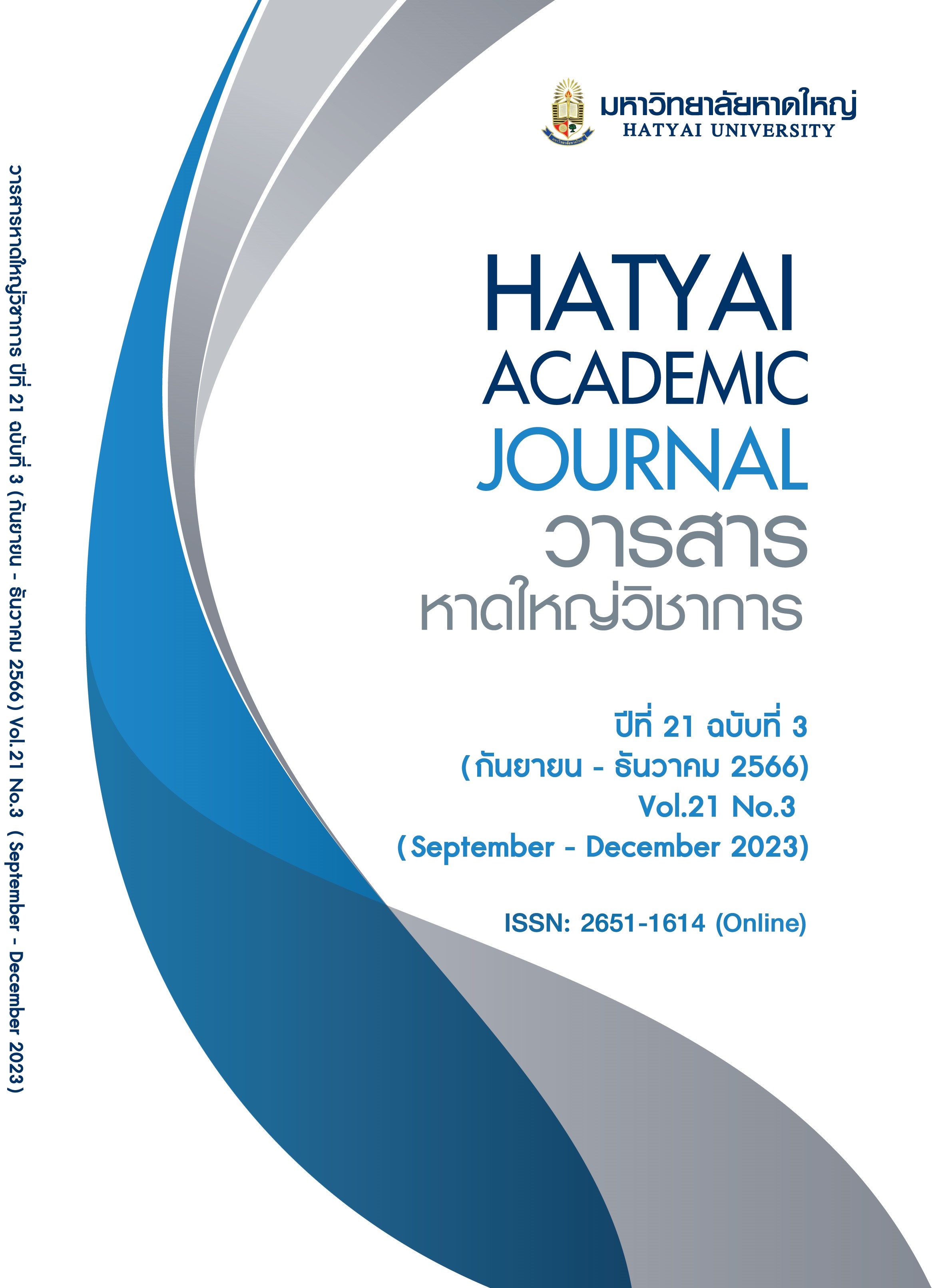Guidelines for Developing Teaching Assistants by Using the Continuous Support System of Schools with Disabilities in Group 2 Affiliated with the Office of Special Education Administration
Main Article Content
Abstract
This research is qualitative. It concerns using lessons learned and finding ways to develop mentors through a continuous support system. The main group of informants consisted of school mentors for particular disabilities, mentors with school experience specializing in disabilities, school administrators with disability specialities, and 25 scholars with special education knowledge. They were specifically selected. The data collection tool was a semi-structured interview analyzing the data by using content synthesis. The results showed that guidelines for developing mentors through the continuous support system are divided into three steps as follows: 1) before coaching, set the school’s policy must be done to use it as a guideline for the operation of providing training to mentors, encouraging mentors to change, and building morale by supporting the creation of a mentor network; 2) during coaching, administration by using an effective team collaboration method with good planning and workflow together with the usage of the PDCA cycle in operation, applying reinforcement in the feedback form, and conducting follow-up supervision with fellowship coaching; and 3) after coaching, proceed by reviewing and exchanging knowledge to adjust the coaching style, which consisted of five components: 1) awareness-raising; 2) challenge-building; 3) planning; 4) cognitive coaching; and 5) reflection.
Article Details

This work is licensed under a Creative Commons Attribution-NonCommercial-NoDerivatives 4.0 International License.
All published articles are evaluated by three qualified peer reviewers from various institutions through a double-blind process, where reviewers do not know the authors’ identities and authors do not know the reviewers’ identities. The content and articles in the Hatyai Academic Journal reflect the authors’ views only and are neither the opinions of the editorial board nor the responsibility of Hatyai University. The Editorial Board of the Hatyai Academic Journal allows articles to be reproduced for academic purposes, on the condition that the original source is clearly cited.
References
Gottesman, B. L. (2000). Peer coaching for educators. Lanhan: The Scarecrow.
Jongsatityoo, J. (2015). Report on the synthesis of results of a research project on teacher development process with teacher coaching (Research report). Bangkok: Office of Research Fund and Office of the Basic Education Commission. [in Thai]
Khampuang, T. (2018). Holistic teacher development by comparing competencies. Bangkok: Office of Research Fund and Office of the Basic Education Commission. [in Thai]
Krohn, D. A. (1999). An ethno cultural training model for graduate level school psychology students working with families of children with development disabilities: A pilot study. New Jersey: Graduate School of Applied and Professional Psychology.
Lenhardt, V. (2004). Coaching for meaning: The culture and practice of coaching and team building. Great Britain: Palgrave Macmillan.
Ministry of Education. (2018). Education in Thailand 2018 (8th ed.). Bangkok: Prik Waan Graphic. [in Thai]
Rungruang, K., & Poolsuwan, S. (2015). Project teacher development with the support system for continuing to enhance academic achievement and 21st century skills of students Nakhonnayok Province (Research report). Bangkok: Research Fund Office and the Office of the Commission. [in Thai]
Sængsimuk, S. (2014). Model of the development of teacher competency in educational institutions under the district office primary education. Education Journal Naresuan University, 16(2), 13-14. [in Thai]
Special Education Bureau. (2018). Special education for children with special needs. Bangkok: Department of Special Education Faculty of Education. [in Thai]
Tomlinson, C. A., Brimijoin, K., & Narvaez, L. (2008). The differentiated classroom. Alexandria: Association for Supervision and Curriculum Development.
Toonthong, S. (2015). Research and development project for teacher development process with continuous support system that promotes 21st century skills of students in Lopburi Province. Bangkok: Office of Research Fund and Office of the Basic Education Commission. [in Thai]


